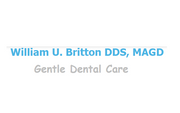Common Questions About Having Wisdom Teeth Removed

Wisdom tooth extraction is generally recommended to most dental patients in the United States. If a dentist has recommended removing your wisdom teeth, it’s natural to have some questions about the procedure and how you'll feel afterward. Luckily, the answers will put your mind at ease.
A Guide to Wisdom Teeth Removal
Why are wisdom teeth removed?
Wisdom teeth can jeopardize your dental hygiene, as it’s hard to clean that far back in the mouth. However, the largest concern is that they’ll crowd your other teeth, putting pressure on your jaw and shifting your teeth out of alignment. They may also become impacted, leading to pain and infection.
Even if you haven’t experienced issues yet, they may be taken out as a preventive measure if your imaging shows that any of these problems are likely. Being proactive will ensure your mouth stays healthy.
Can I wait if I don’t want them removed yet?
While it may seem inconvenient, it’s wisest to have your wisdom teeth extracted as soon as it’s been recommended. Waiting and postponing the procedure can lead to more extensive problems later, as the risk for complications is higher the older you get. This is partly due to the jawbone hardening as you age, which can make removal more difficult. If your dentist has recommended tooth extraction, it’s advice you should act upon sooner rather than later.
What does the procedure involve?

You may receive a local anesthetic or be put under general anesthesia, depending on your health and the number of teeth being removed. Once anesthesia is administered, a small incision will be made in the gum over the tooth for better access, and all tissues connecting the tooth to the jawbone will be gently removed.
The next step is removing the tooth, which may be done in pieces. Sometimes, a small amount of bone will need to be removed to free it. Once the removal is complete, stitches will be used to close the site.
What is recovery like?
Typically, recovery from the procedure only lasts a few days. You’ll be on a restricted diet to avoid disturbing the extraction site, which means soft or liquid foods only for a day or two. Avoid physical exertion, sucking through a straw, smoking, and hard rinsing for a few days to prevent delayed healing. Your dentist may prescribe pain medication, but a combination of over-the-counter medicines and ice packs is usually enough to help with any swelling or discomfort.
If you need wisdom tooth extraction, contact William U. Britton, DDS, MAGD, in Chillicothe, OH. For over 35 years, this dentist has provided general and emergency dental services for patients in every age group. The team uses a gentle approach in a state-of-the-art facility with advanced technology like Panorex® imaging. Get to know their dentist online and call (740) 772-2225 to schedule an appointment.
About the Business
Have a question? Ask the experts!
Send your question

